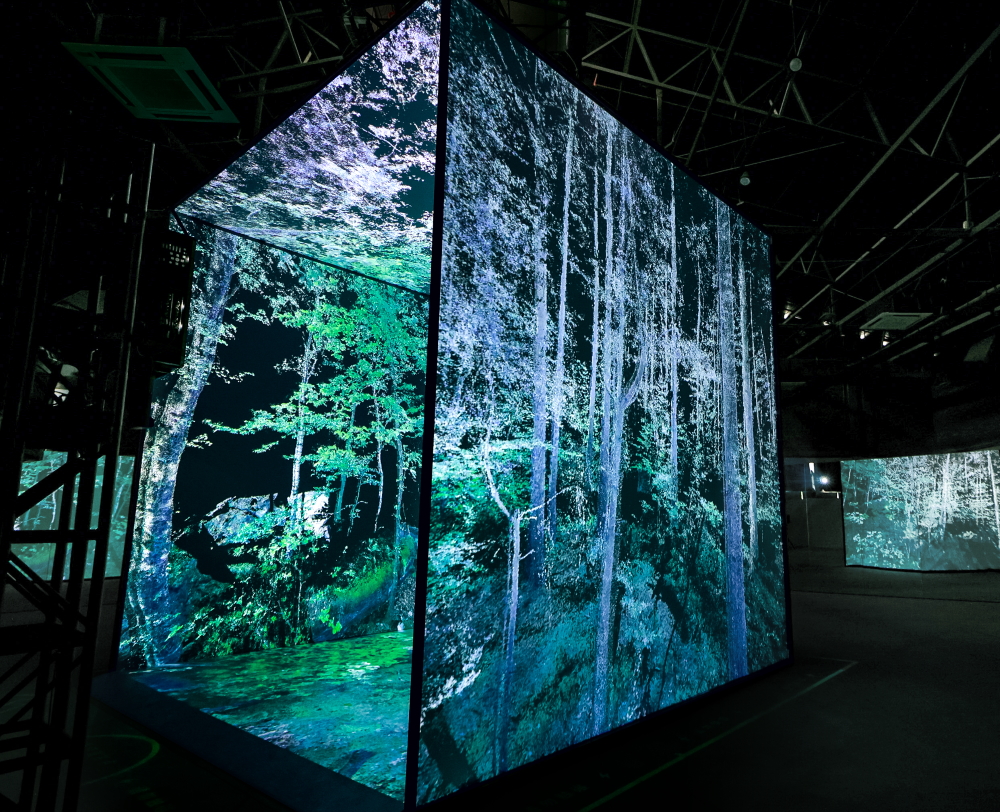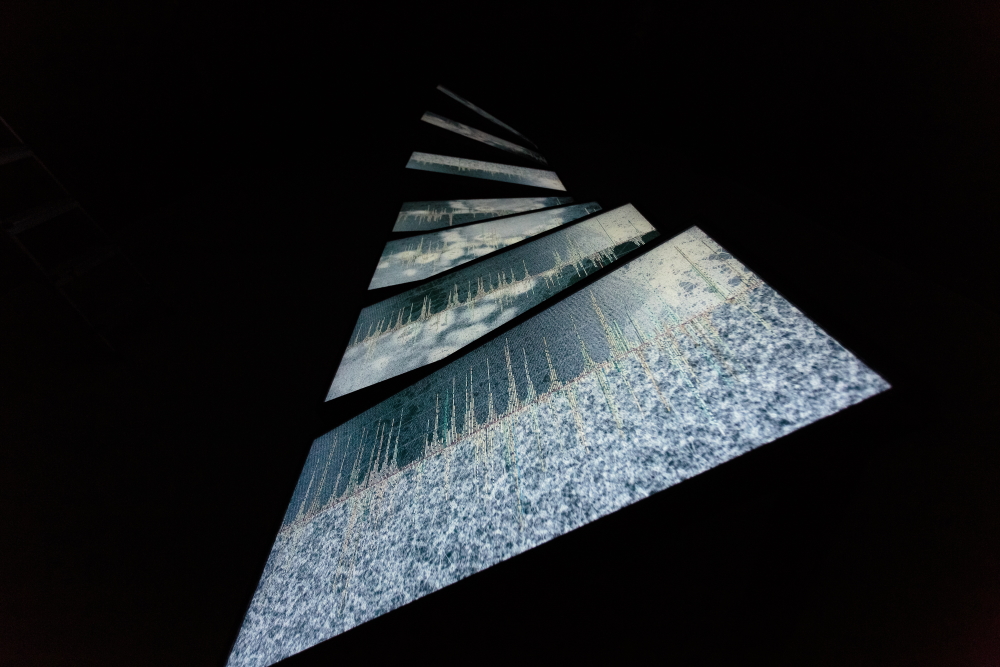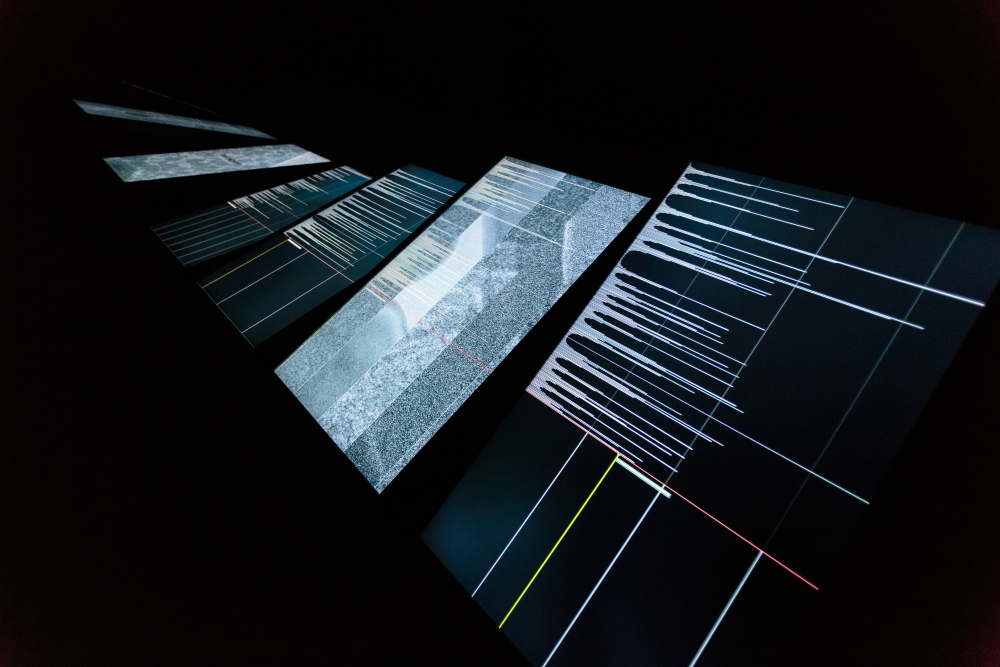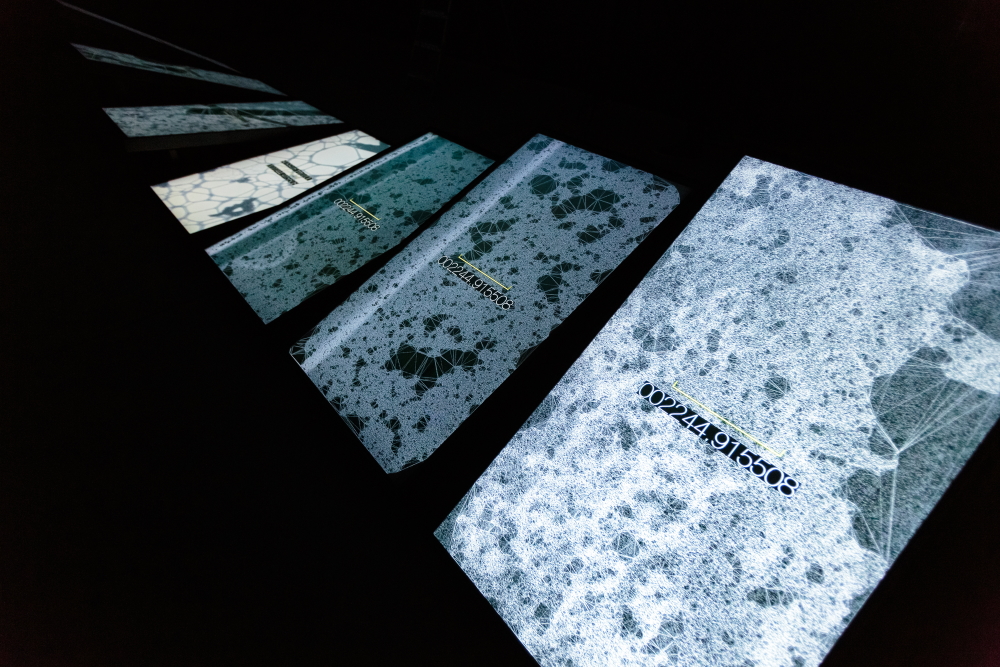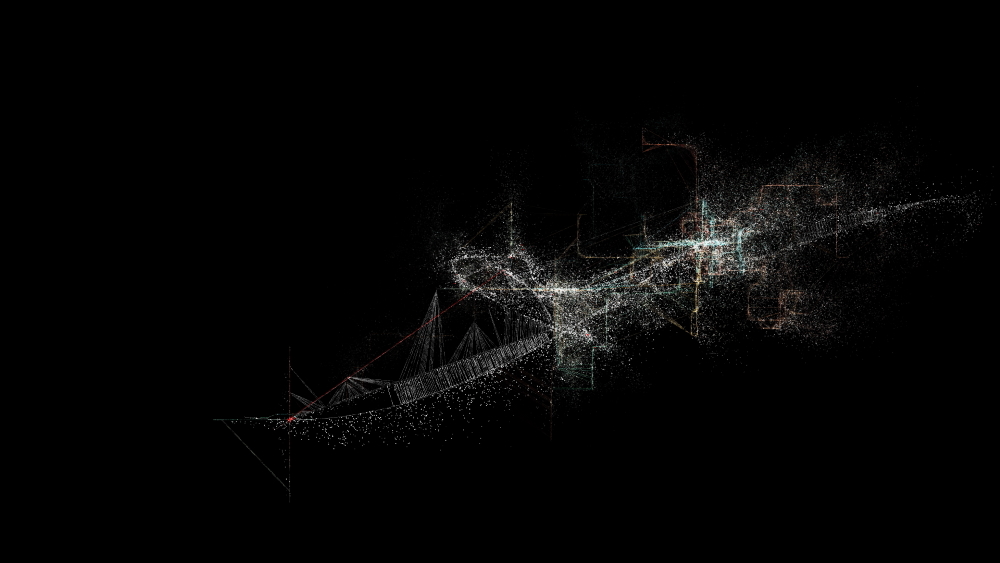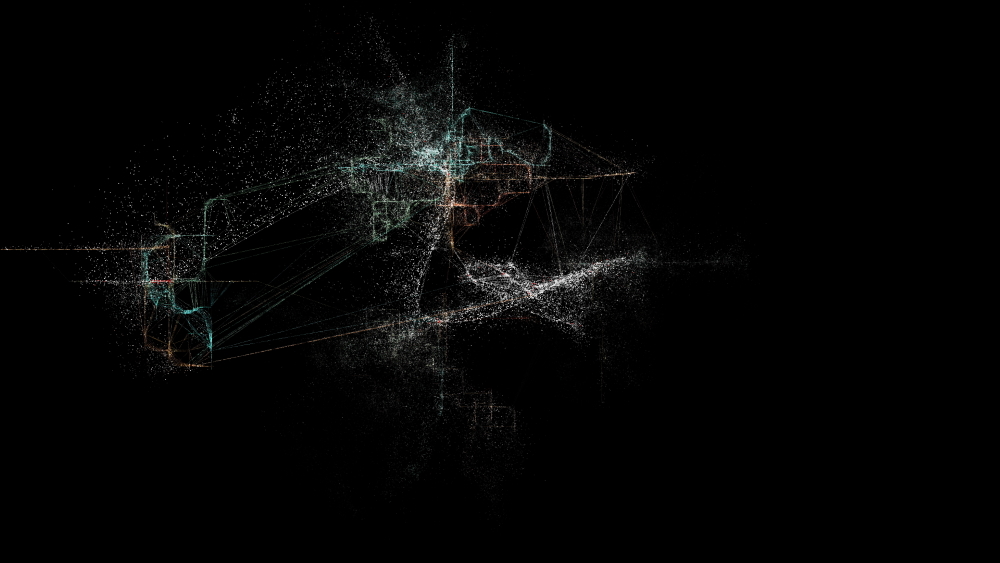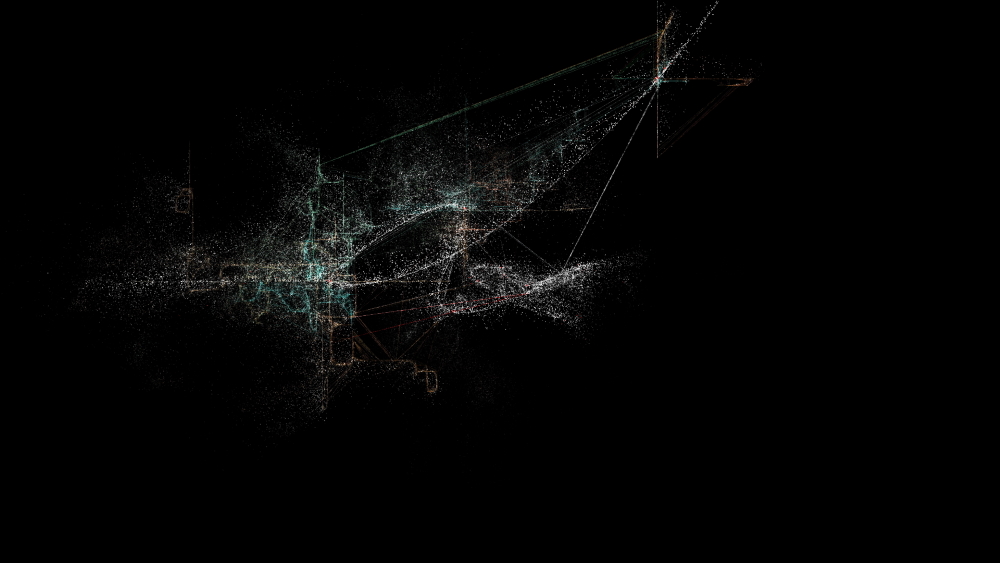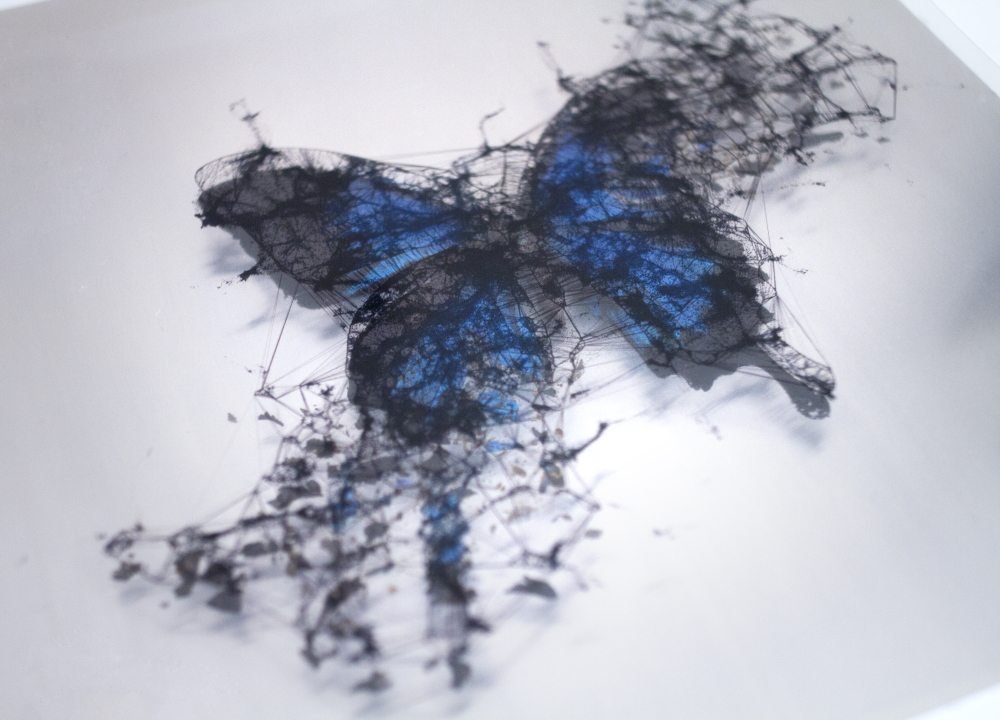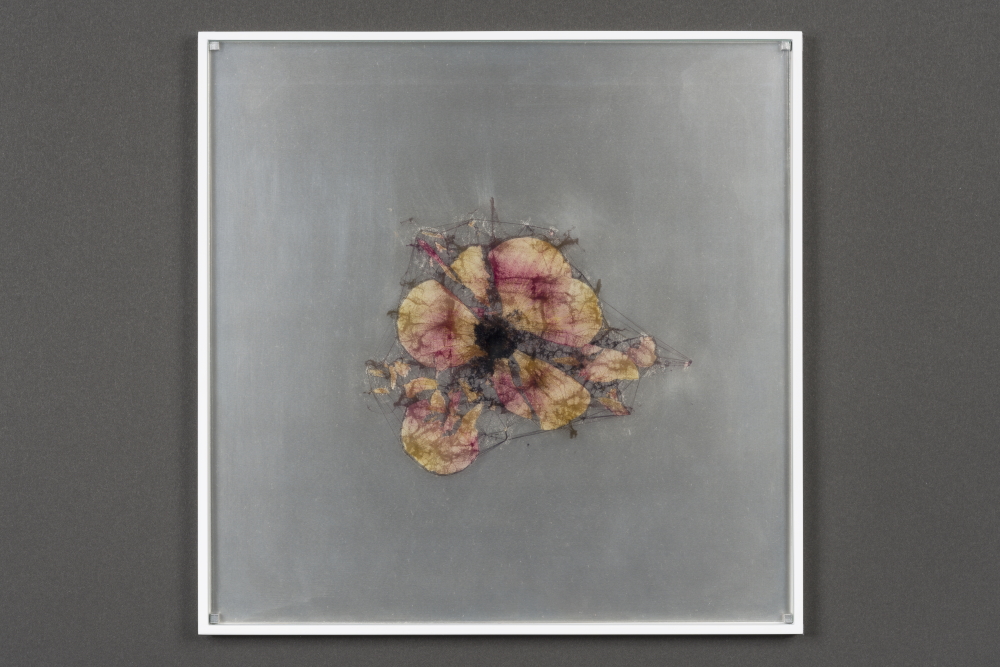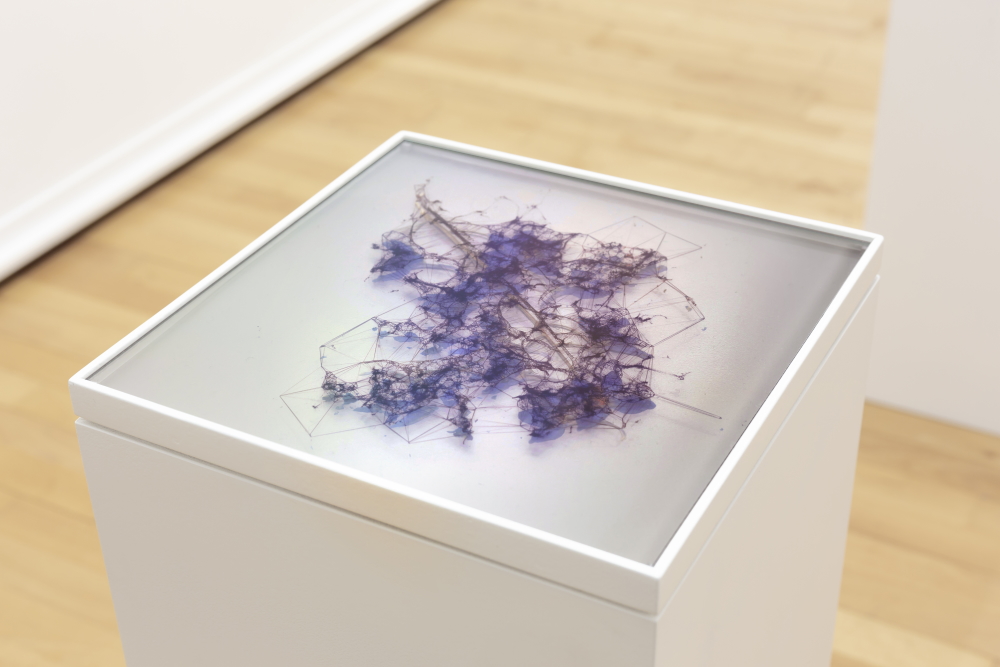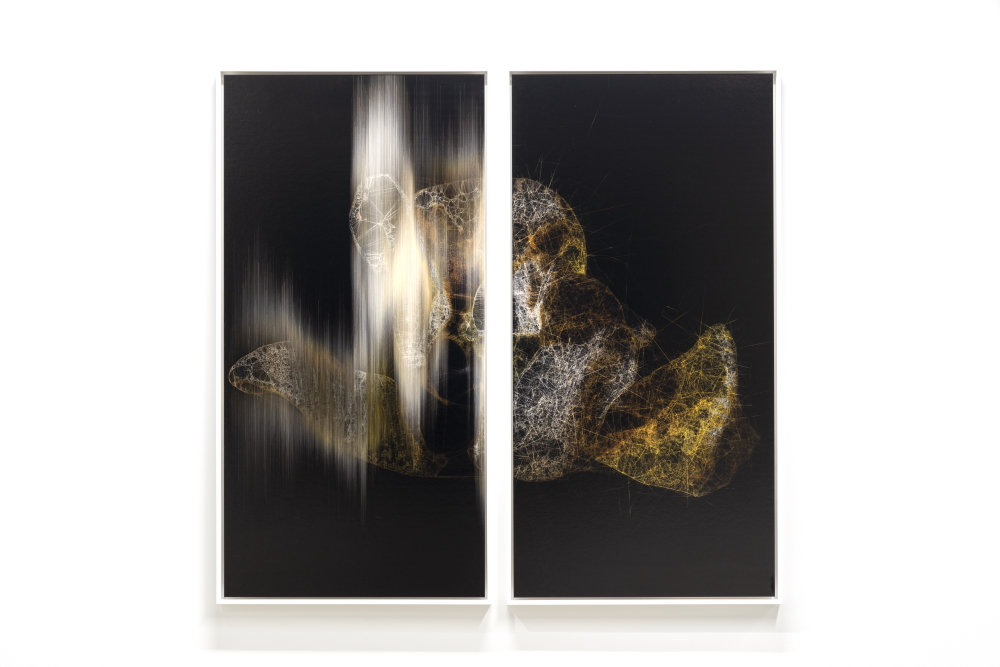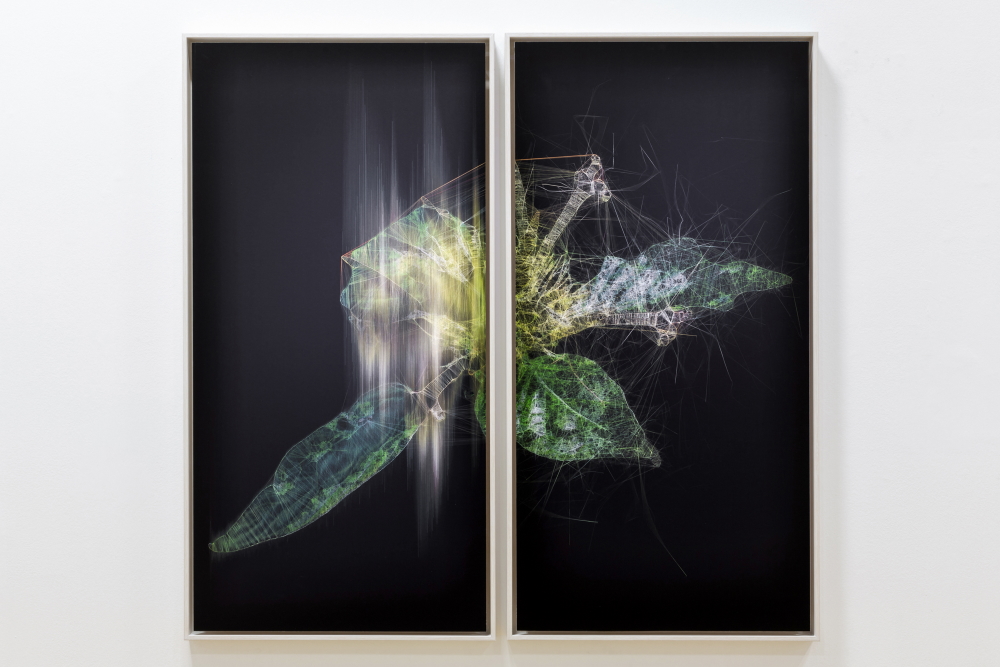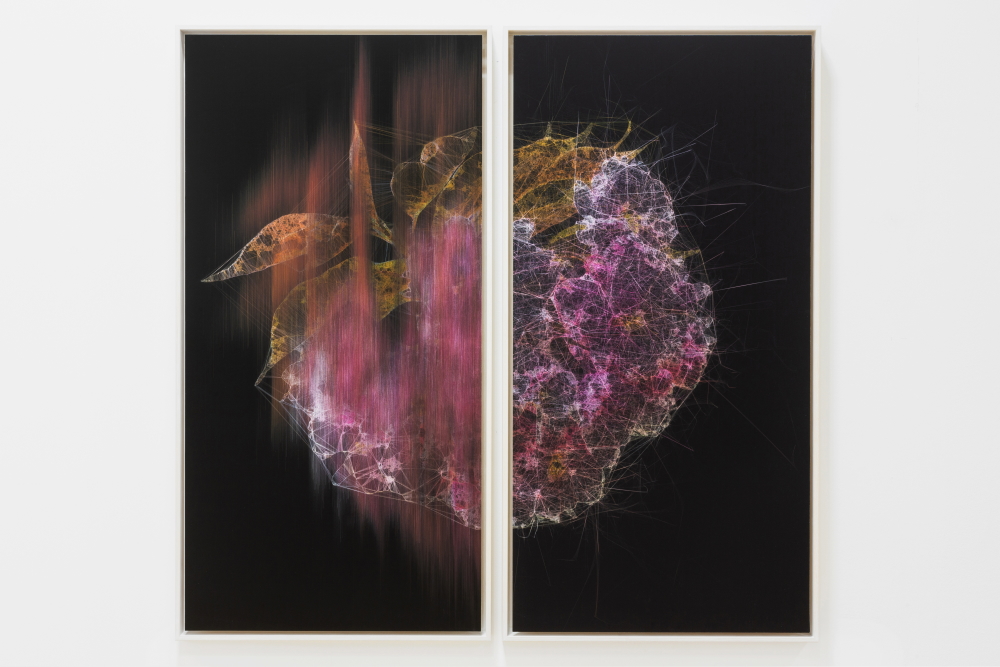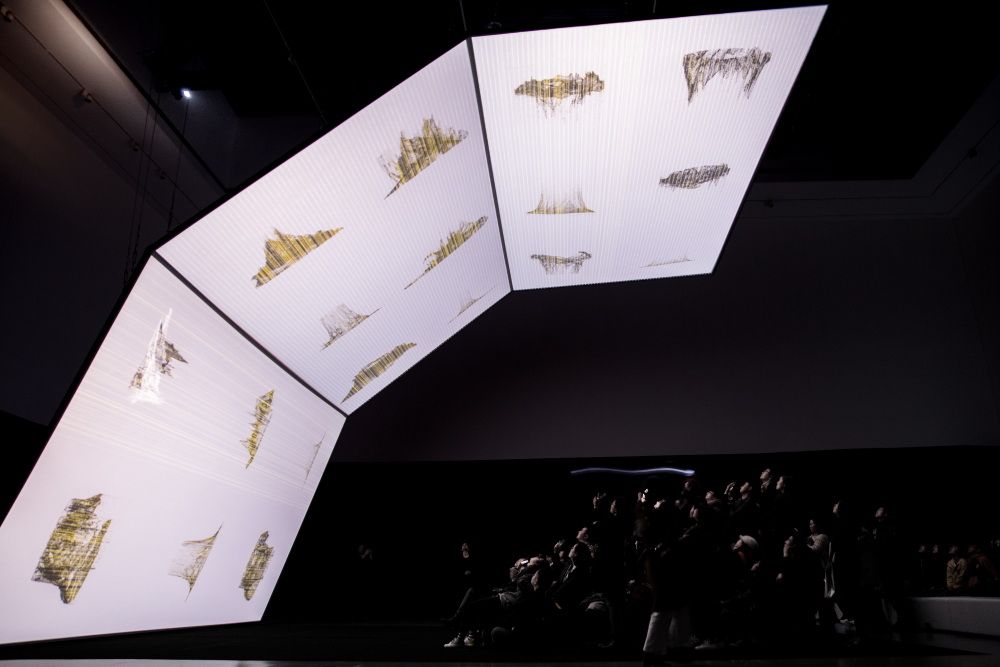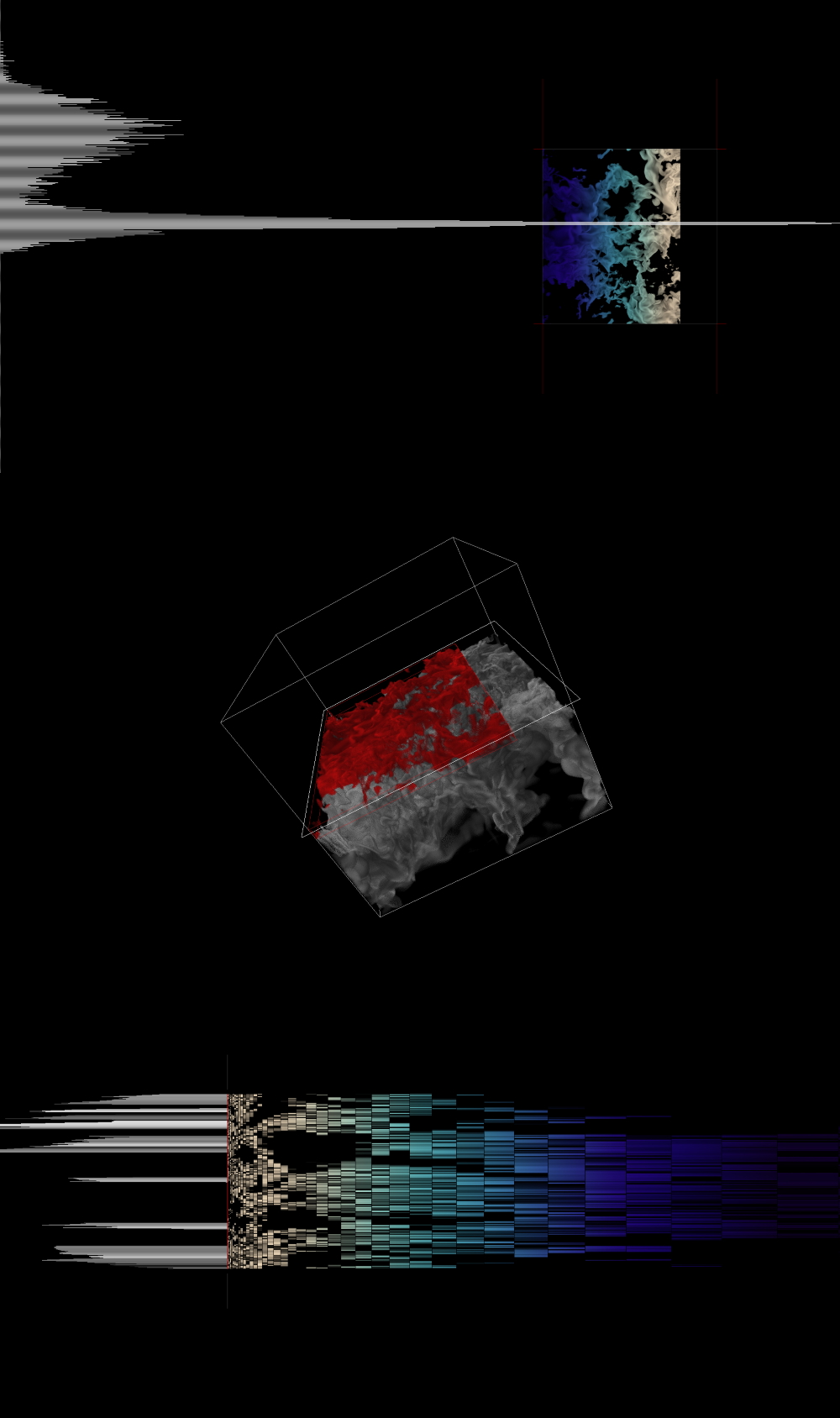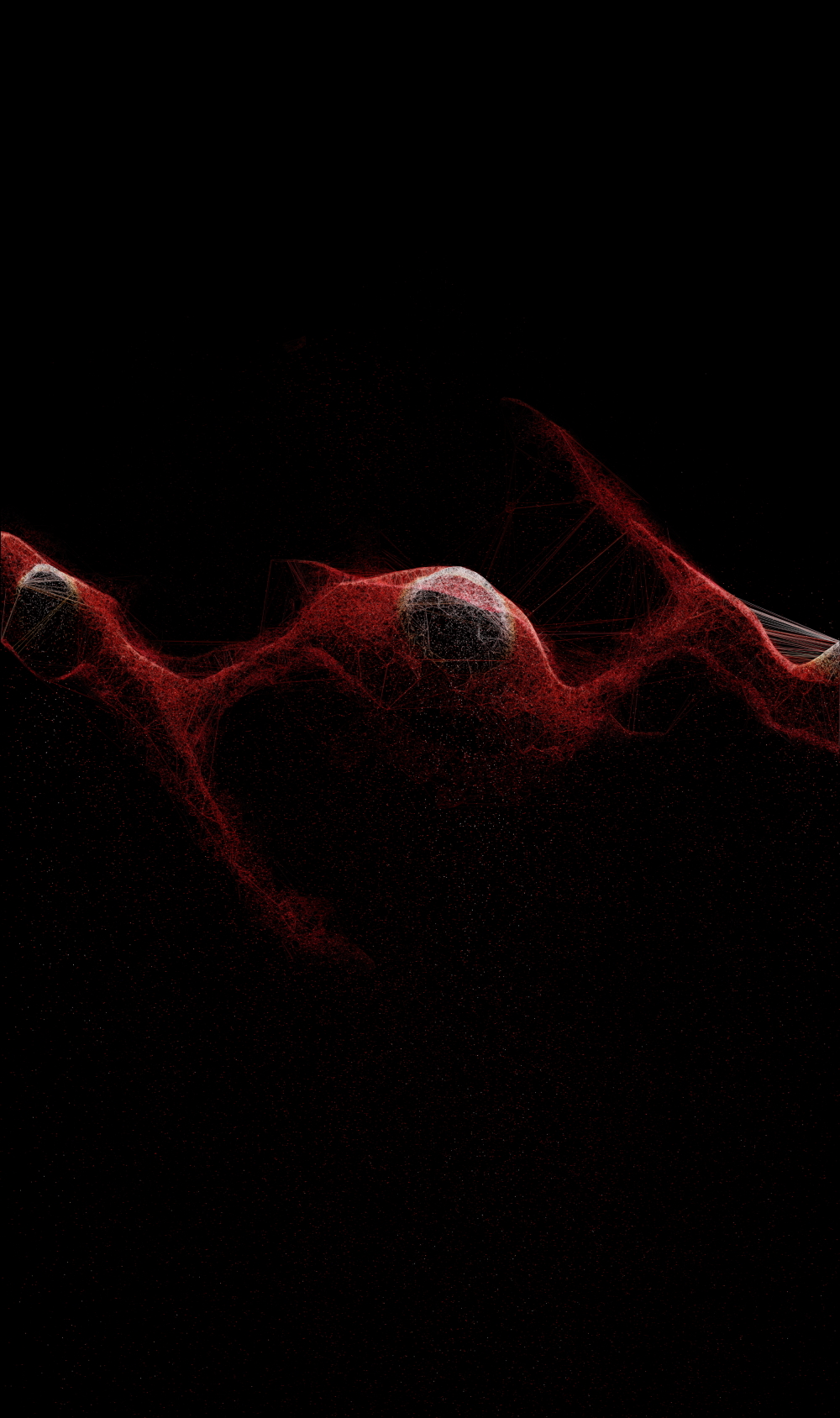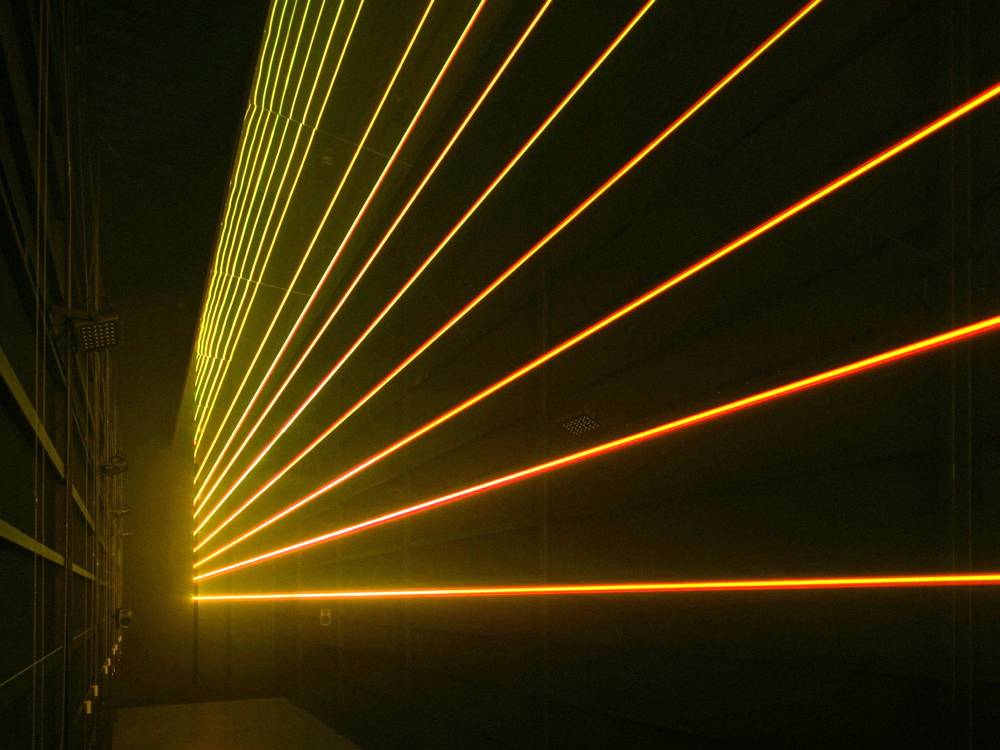Ryoichi Kurokawa
artist
Japan / Germany
„The inventor of ‚technological naturalism‘". That’s what ‚arte.tv‘ called this creative, whose „impressive audiovisual compositions bring visual and sonic material together using a completely revolutionary perspective. His language“, according to anti-utopias.com, even sets „a new international benchmark in the world of digital art.“
Ryoichi Kurokawa
artist
Japan / Germany
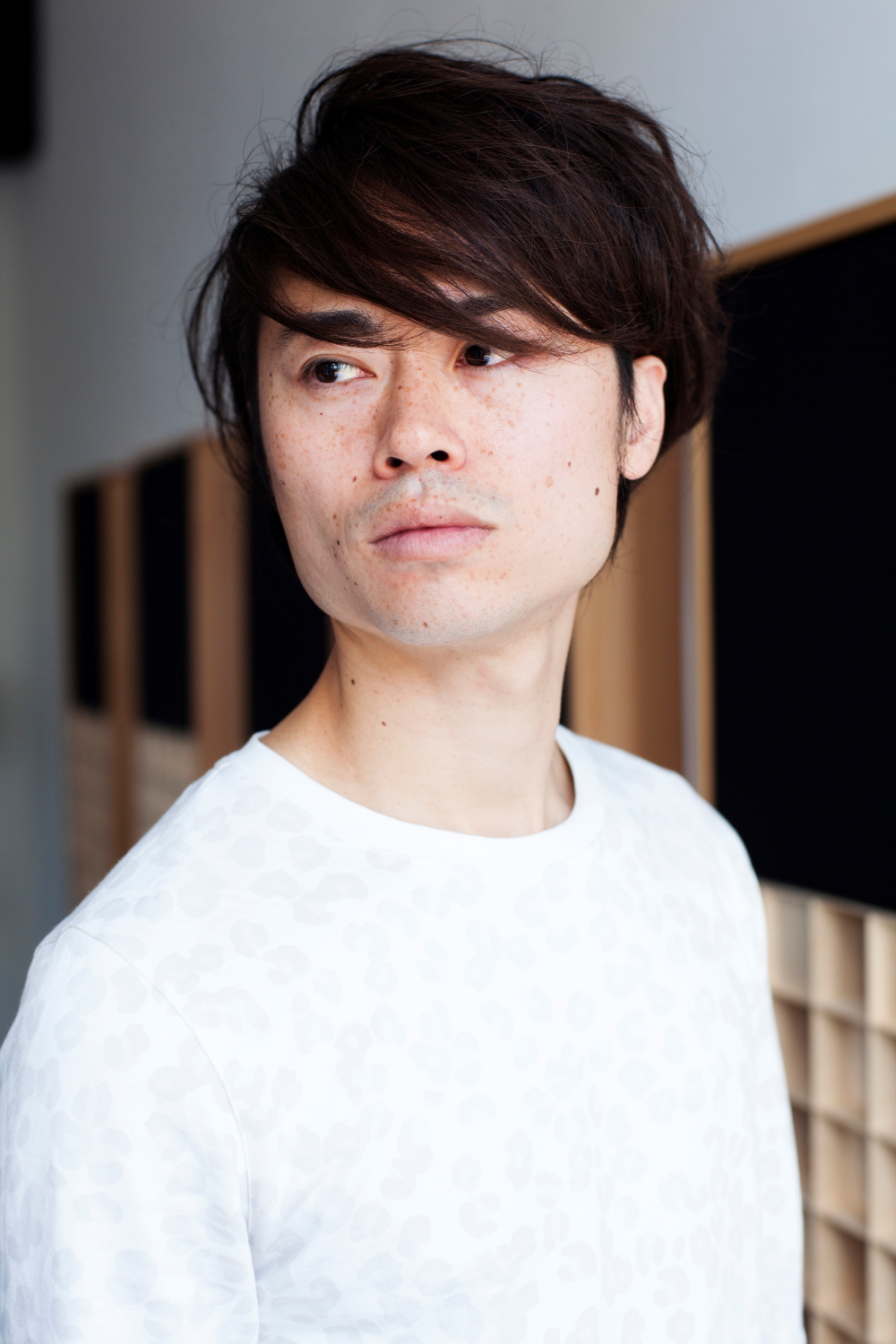
Ryoichi Kurokowa’s extraordinary data symphonies come into being once nature is measured as well as scanned by lasers and thermographic cameras. These digits are transferred then into immersive installations. Such performances are presented on large video screens that melt multi-channel image and 3 D-sound into one overwhelming entity. Its spirit and purpose is questioning the relationship between man and nature. What is important to the admirer of provocative art movement founder Joseph Beuys, however, is what he said in an interview with electronicgroove.com: „Rather than to deliver specific messages or information, I want to provide inspiration!“
Born in 1978, nature fascinated him already from an early age on. Growing up in the countryside near Osaka, he experienced the power of the ocean and typhoons. The natural forces of the real world were transferred into digital informations – first in audiovisual form (1999) and, one year later, in installations. „I convert the properties of nature into data“, the self taught programmer told Franco German tv network „arte“. „This allows me to show all the things that are hidden behind the concept of nature. This can only be achieved through art. It is impossible to understand it by just observing nature...I give people the opportunity to experience their senses as they have never experienced it before when I bring everything together: the auditory, the visual, vibration, touch and sensory perception.“
In 2016 Kurokawa who gets inspiration - aside from nature - by musique concrète left earth artistically. His collaboration with Vincent Minier, an astrophysicist and researcher at ‚Irfu‘ (Institute of Research into the Fundamental Laws of the Universe) at ‚CEA‘ (Commissariat à l’énergie atomique et aux énergies alternatives/Alternative Energies and Atomic Energy Commission) in France, based on data produced by the satellites of the European Space Agency, ‚NASA‘, and more specifically by the Herschel space telescope. The result, an installation titled „unfold“, takes one into space and makes it possible to witness the birth of the stars.
2017 brought „ad/ab Atom“ – an audiovisual installation based on data on nano-level and microscopically detected materials where the laws of nature are governed by quantum mechanics. The viewers can experience the distorted highly magnified world.
In 2018 it was time for „elementum“ – digital prints, pressed flower/butterfly under glass in pedestal of aluminium.
2020 saw „Lithi“, an immersive audiovisual installation composed of laser modules, strobe lights, and sound.
The installation „s.asmbli/subassemblies“ is a project which pursues the relationship between nature and human-made through a perspective of architectural scale. Main sources therefore are 3d data by laser scanning human-made architecture, ruins and nature. Those are distorted and reconstructed into each modules as subassemblies to create renewed timeline with layers of order and disorder while exposing force of both nature and art.
The former fan of American designer, architect and filmmaker Charles Eames deals with pure earthly matters too by transforming data into sculptures. Based on scans of their molecular structure, he reconstructs the silhouettes of insects. "Nature as we define it today“, Ryoichi Kurokawa told elektramontreal.ca, „could disappear in the coming decades. If nature still exists in nature, we will be forced to find a new definition for it.“
His harmonious combination of field recordings and computer-generated structures „open the gateway to an imaginary world where complexity and simplicity alternate and combine in a strange symbiosis.“ (anti-utopias.com). Because of their unique approach the installations are awarded and shown across the world at international festivals and museums including ‚TATE Modern‘ (London), ‚Centre Pompidou‘ (Paris), ‚Palais de Tokyo‘ at the 54th ‚Biennale‘ (Venice), ‚ARS Electronica‘ (Linz/Austria), ‚Mutek‘ („The international festival of digital creativity and electronic music“) and many more.
“In a sense, Kurokawa is an artist who can be regarded as a exemplary trendsetter in his field, or an aesthetic defining trailblazer who is still pointing the way for others“, praises him Naut Humon. The San Francisco-based composer, curator, performer, and leader in experimental electronic music and audiovisual projects justifies his assessment as follows: „The astonishing diversity of his explorations points to an amazing productivity that seems to flow without end. He is a genre-transcending artist who continues to confound and transform stereotyped notions concerning the illustration of electronic image expression. Although one cannot predict precisely what Ryoichi will do next, one can be sure of this: His new work will be exciting and will take enormous creative risks; it will be of very high quality with great attention to detail; it will reach a very diverse audience; and most importantly, it will be something that we have not viewed before.”
Ryoichi Kurokawa lives and works in Berlin.
Interview May 2022
Synaesthesia showdown: experience what is hidden behind the concept of nature
INTUITION/IMAGINATION
“Intuition is the key to everything“, said internationally acclaimed filmmaker David Lynch („Twin Peaks“). „I think you could have an intellectual ability, but if you can sharpen your intuition, which they say is emotion and intellect joining together, then a knowingness occurs.“ What sparks intuition for you, is it temporary or can it be engaged anytime? How does intuition present itself – being a gut feeling or a suspicious impression?
It has a different definition in individuals. For me, it's the ability to make an instantaneous judgment without conscious reasoning. It can be gained from one's experience even if it's a gut feeling or a suspicious impression.
Do you visualise something spontaneously in your mind’s eye - maybe in dreams?
Yes, sometimes.
Will any ideas be written down immediately and archived?
I try to make a note when I hit an idea.
What if there is a deadline, but no intuition? Does the first fuel the latter maybe?
I keep creating as I don't only rely on an intuitive sense.
Are great ideas based on intuition or by almost endless trials and errors that result in constant developments up until the final result?
I like both ways.
World-famous guitarist Carlos Santana said to me, when the “sky” opens and sends you a brainwave one has to grab that special spiritual moment for realising it before the clouds darken all again. What do you think about that?
I understand that moment, but I myself don't describe on it spiritually. Rarely but I encounter that moment just when timing and conditions are accidentally right.
Does every idea exist immaterially already and just has to be put into effect, i.e. is creativity in its profound purpose basically about transferring dreams into reality?
Yes, anybody can conceive it but not everyone can bring it into reality.
INSPIRATION
What inspires you and how do you stimulate this special form of imaginativeness?
Nature inspires me a lot. It has been habitually triggered to go into action for me, not only for creation.
Do calm and relaxation prove the most suitable or does pressure fire up creativity?
Latter case.
?: How do you separate the good from the bad and which ideas are worthwhile to be explored further or whether one idea has the potential of being outstanding really?
Once I develop them up to certain point and judge during this process. During development I welcome willingly errors, accidents, something I haven't expected if I find it yields worthful outputs.
What key characteristic does an idea need to be viable i.e. does it have to appeal to you personally or promise commercial potential/fulfil certain needs?
I don't consider on commercial needs, it's more personal aspect. Basically I move forward when I want to embody its idea.
Does inspiration for you reveal itself in a kind of clear and complete vision so that you just have to capture the fantasy in a way that’s authentic to your creativity?
Inspiration is one of triggers for creativity, and there are other several creative processes. It doesn't reveal full vision, it would rather be speculative draft.
Do you sometimes revisit old(er) ideas (especially in tough times of need)?
Yes.
How long do you ponder an idea before creatively working on it?
It depends on the piece, from some months to some years.
Do you check what colleagues/competitors are up to/your role models contrive(d)?
Yes, I check them sometimes.
CREATIVITY
Which time/place/environment suits your creative work process the best?
I often concentrate on creative work in solitude at my studio in the late afternoon.
Which path do you take from theory/idea to creation i.e. how do you start?
Most of the case, I start with 3D modelling for format design and technical development for testing.
What does your average creative day look like (early bird or night worker)?
I keep working in the night if I could start focusing, but I generally start working from the early morning.
How important are self-doubt and criticism (by others) during such a process?
Artist can be the most critical on own artwork than anyone. I try to equip critical eye to my work during creation.
Is it better to be creative on your own, only trust your own instincts, or in a team?
I have been following only my own instinct, but it’s just for my case.
Does age/life experience help with creativity or is a younger mind more creative, ‘cos it’s fresh and untouched by experience? What about social/cultural heritage?
There are artworks created only by particular age. I’m attracted to both wild-eye venturous works by young artists and sophisticated enriched pieces by well-experienced artists.
What is your personal approach/motivation/concern regarding creative activity?
Creative activity is my life work. Generally I don't take any special action, it's like everyday's routine.
If you’d make a pie-chart: what is your satisfaction based upon - a) self-realisation/ personal compliance, b) artistic recognition or c) commercial success & fame?
It's almost based upon degree of completion of artwork.
How does a creative find his/her own style/possibly unique way of expression?
I think it could be found by continuation of own creations.
Is craftmanship important or should creatives be able to work 100% unloaded?
I don't think creatives should be able to unloaded.
Can routine, experience and professionalism make up for lack of creativity?
Not only but yes.
If problems occur during the creativity or one’s stuck, how can that be solved?
As I've answered, I welcome willingly errors, accidents, something I haven't expected if I find it yields worthful outputs. If I get stuck, I often change creative task to other activity. For instance, when I get stuck in composing sound, I shift to programming, making visuals, e.t.c.
Are a never give up attitude and persistently hanging on necessities for creatives?
I don’t persistently hang on its necessities.
Which is better in the development process: speed and – if that’s possible - force creativity i.e. grasp the magic of the moment, or a slow, ripening process when it comes to implementation and elaboration?
I prefer to work in a careful way manner with enough time. Even within limited time, I try to spend time as much as possible for creating elaborately.
„Creativity is the ability to reorganise known factors so that they become novel and fresh.“ Do you agree with British rock-manager Tony Stratton-Smith?
Yes.
Should a creative always remain true to him-/herself including taking risks & going against the flow or must one, for reasons of (commercial) survival, make concessions to the demands of the market, the wishes of clients and the audience’s expectations?
If they judge it’s valuable, they should retain a risk-taking attitude. Various experience and knowledge could disturb creation, but ideally I’d like to confront pure creativity.
How is innovation still possible if one has established a distinctive style?
One could not only expand beyond its style, but also produce innovative expression within its style.
Is it good to be ahead of one’s time even one hazards not being understood at all?
If it’s worth to do, yes.
When does the time come to end the creative process, to be content and set the final result free - or is it work-in-progress with an endless possibility of improvement?
I generally set the time otherwise I might endlessly improve pieces.
In case of failure or - worse - a creativity crisis how do you get out of such a hole?
I think I maybe simply take some rest.
Did you ever deliver something that you considered mediocre, but was successful?
No.
SUCCESS
Why are some people successful and others not - despite the same talents?
If people having the same property are in entirely different environment, they follow a different path. Even if they start at the same point of origin and under an identical condition, their own subsequent thousands of choices leads to completely diverse destinations. I think difference of its environment or iteration of a tiny difference of choices makes a significant difference.
Should/can one resist the temptation to recycle a ‘formula’ one’s successful with?
I think it's better to establish new formula or advance to the next stage, although I'm understanding that is not easy.
Is it desirable to create the ultimate/timeless work, but doesn’t “top of the ladder” bring up the question of “what’s next?” i.e. isn’t such a personal peak “the end”?
I feel like it’s impossible to create ultimate work. At the moment when I complete artwork, I’m convinced in some way. However soon, I feel dissatisfied at some points over time. And I feel like to accomplish them in next work. This spiral gains traction since it always leaves blanc space to work, and it could keep me motivated.
MY FAVORITE WORK
I often get this type of question but I can not list my most proud works. Here, I cite my latest project "s.asmbli / subassemblies" as I'm currently presenting its concert and installation in many countries. This is a project containing different presentation formats such as a concert piece, immersive installation, VR and multiscreen installation with strobe light. Nature is inspiration source as usual, but with this project, I wanted to expose force of both nature and art and contrast them.
